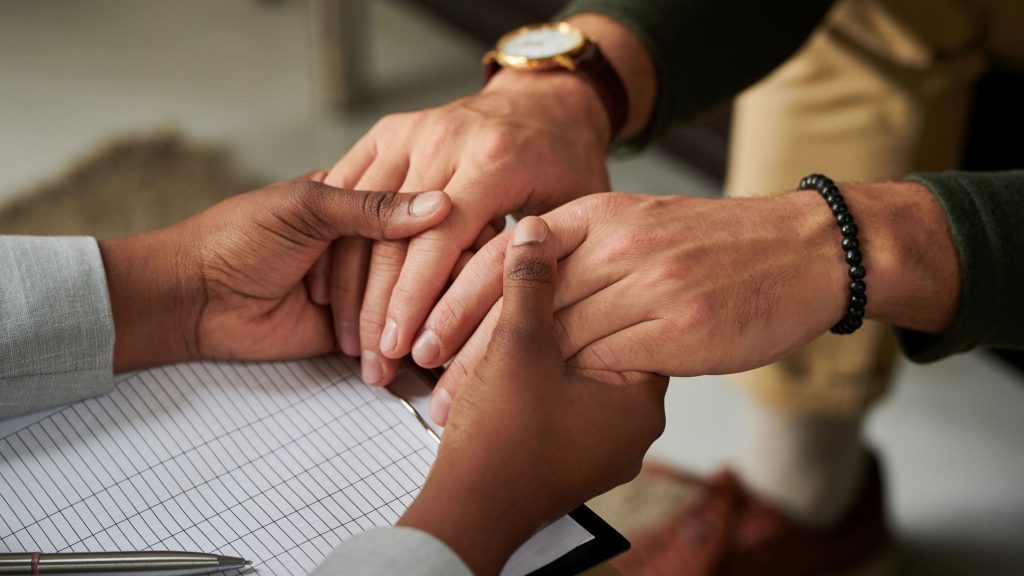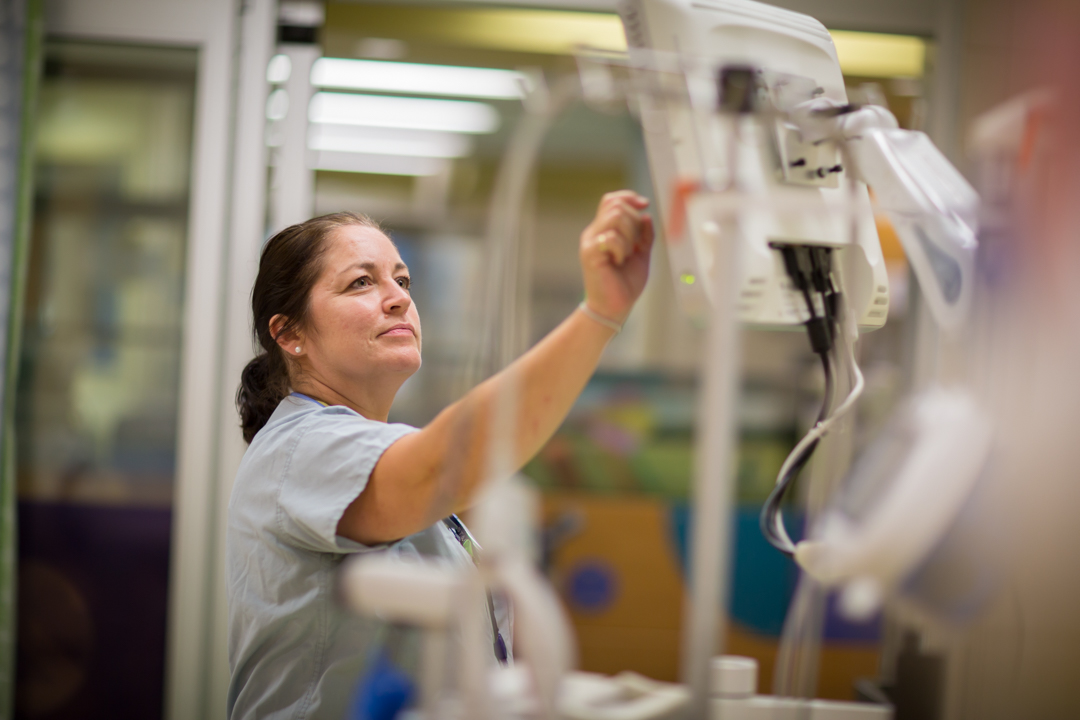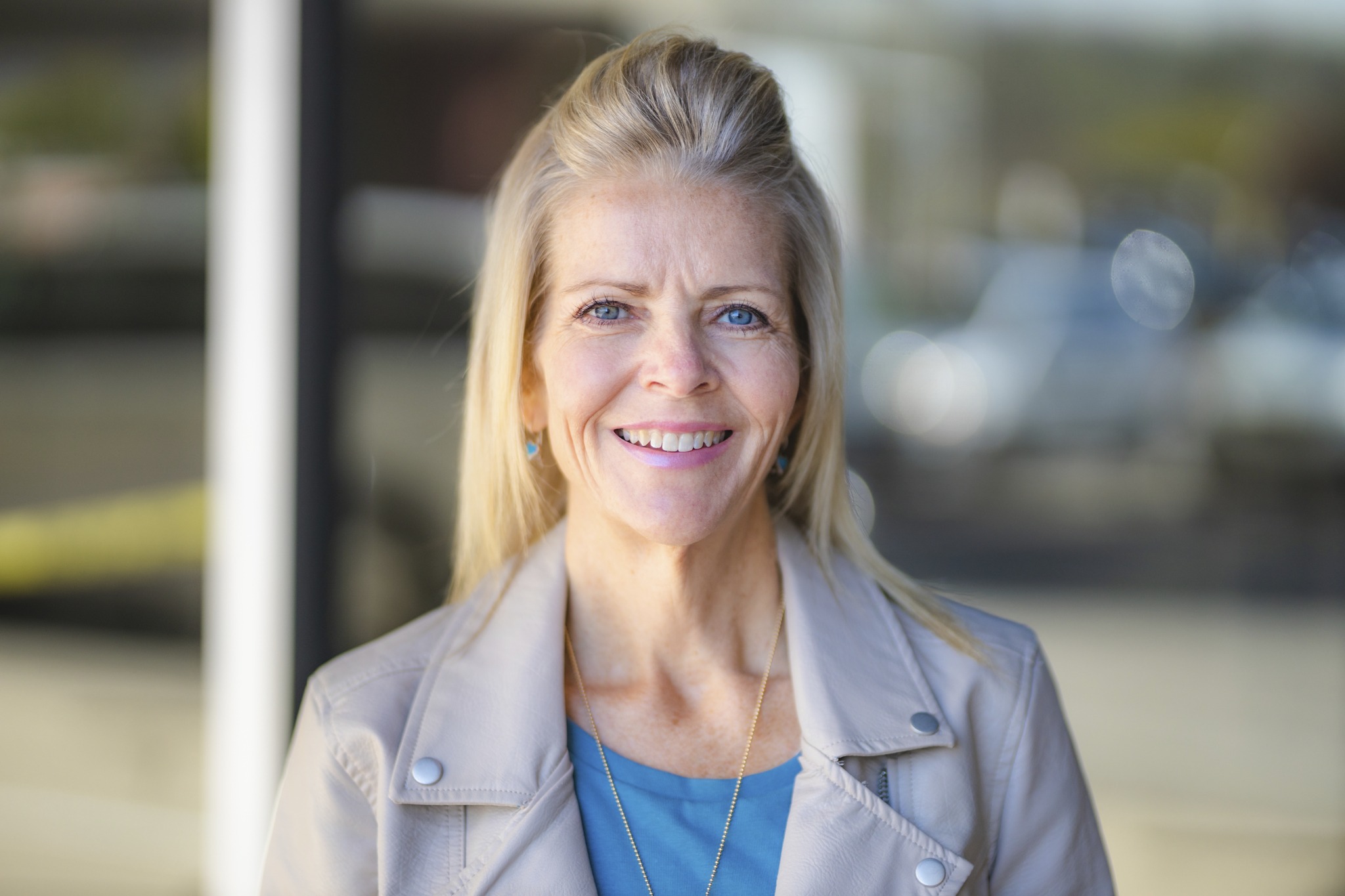
Supporting victims of domestic violence
Content warning:
November 25 is the International Day for the Elimination of Violence Against Women and December 6 is the National Day of Remembrance and Action on Violence Against Women. This story is about the resources available to the community, as well as HHS staff, who may be experiencing sexual assault and/or domestic violence.

Cathy (2017 photo taken pre-pandemic)
Cathy is a clinical leader for the pediatric intensive care unit (PICU) and Pediatric Critical Care Transport Team at Hamilton Health Sciences’ (HHS) McMaster Children’s Hospital. She’s also an advocate for supporting victims of domestic violence (DV) – something she survived herself.
“As a health care worker, being a victim of DV is hard to accept because you’re used to helping others. You’re not used to needing the help yourself,” says Cathy. “DV can be confusing and difficult to detect – it isn’t just about hitting. I want to use my voice to raise awareness and give hope that anyone can get through this.”
Placing trust in the resources available
Cathy is part of a team at HHS where members have experienced domestic violence and lend their voices of lived experience to support other staff and physicians at the hospital who come forward. “We want to use our experiences to help others,” says Cathy. “It is hard to know where to turn to but there are some great resources at HHS that are very helpful.”
One of the resources is the HHS’ Preventing and Managing Domestic Violence in the Workplace Protocol, which sets out clear guidelines for how leaders and colleagues should respond when a co-worker discloses information about domestic violence.
“I want to use my voice to raise awareness and give hope that anyone can get through this.”
Susan Fuciarelli, director of health, safety and wellness at HHS, reviews the protocol annually with the support of a multi-stakeholder group which includes social workers and patient advisors.

Susan Fuciarelli
“Whenever we’re developing any health and safety related policies, we always look to see what internal and external resources and experts may be available for us to consult with,” says Fuciarelli. “And we review the protocol to see if there is anything to add or amend.”
Help is available
For both members of HHS and the wider community, the HHS Sexual Assault and Domestic Violence (SA/DV) Care Centre provides compassionate, confidential health care. It is located at the McMaster University Medical Centre (MUMC).

Laura Smith
Laura Smith is a nurse facilitator and program coordinator at the SA/DV Care Centre.
“Whether the person is from the community or HHS, we can support them if they’re trying to leave an abusive relationship,” says Smith. The centre provides counselling services on how to safely leave a relationship and provides emotional support to help survivors deal with the complexities of having been in an abusive relationship.
The SA/DV Care Centre helps victims just as they want to be helped.
“It’s important to get past that stigma – it’s trusting that they’re still going to have control of the outcomes of them coming forward,” says Smith. “They’re not going to be judged. They can trust us.”
You are not alone
In addition to working at HHS, Cathy also co-owns a company called Peer 2 Peer Consultants, which provides resources for victims of DV. In the early stages of the COVID-19 pandemic, Cathy was involved with a poster campaign aimed at promoting an app, Promise, to help victims develop a personalized safety plan.
“The overall message was to tell people that they weren’t alone,” she says. “Stress at home has been high since the start of the pandemic, we want to get the tool to out to people who are struggling.”



